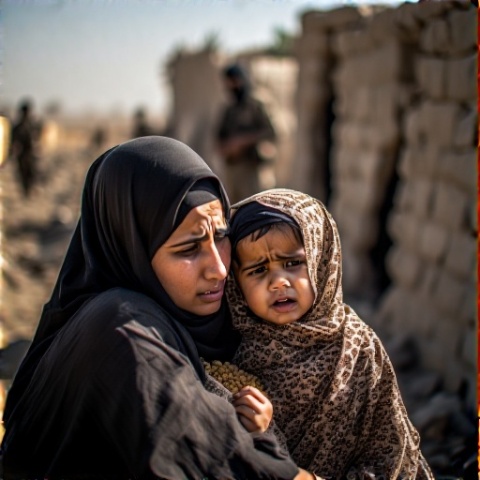Islam encourages trade and entrepreneurship as noble means of earning a living—provided they comply with Sharia principles. The Prophet Muhammad (PBUH) himself was a merchant, and the Quran repeatedly emphasizes fair trade and ethical business conduct.
“And do not consume one another’s wealth unjustly or send it [in bribery] to the rulers in order that [they might aid] you [to] consume a portion of the wealth of the people in sin, while you know [it is unlawful].”
(Surah Al-Baqarah, Ayah 188)
This article explores 10 Halal business ideas for Muslim entrepreneurs, grounded in Quranic teachings and Prophetic traditions.
1. Halal Food Business
The global Halal food industry is booming, valued at over $2 trillion. Starting a Halal-certified restaurant, catering service, or packaged food business aligns with Islamic dietary laws.
Why It’s Halal:
- The Quran permits consuming Halal food:
“Eat of what is lawful and wholesome on the earth.”
(Surah Al-Baqarah, Ayah 168 )
- The Prophet (PBUH) encouraged honest trade in food:
“Sell without deception, and do not hoard goods to inflate prices.”
(Sahih Muslim, Hadith 1512)
Business Ideas:
- Halal meal prep delivery
- Organic Halal meat shop
- Islamic bakery (date-based products)
2. Islamic Finance Services
Conventional banking involves riba (interest), which is prohibited in Islam. Islamic finance offers ethical alternatives.
Why It’s Halal:
- Allah (SWT) forbids interest:
“Allah has permitted trade and forbidden interest.”
(Surah Al-Baqarah, Ayah 275)
- The Prophet (PBUH) cursed those who deal in riba (Sahih Bukhari, Hadith 2085).
Business Ideas:
- Islamic microfinance platform
- Halal investment consultancy
- Sharia-compliant crowdfunding
3. Modest Fashion Brand
The modest fashion industry is projected to reach $400 billion by 2024. Launching a brand that offers Hijabs, Abayas, or modest activewear caters to a growing Muslim market.
Why It’s Halal:
- The Quran commands modesty:
“O Prophet, tell your wives and daughters to draw their cloaks over their bodies…”
(Surah Al-Ahzab, Ayah 59)
- The Prophet (PBUH) encouraged cleanliness and presentability (Sunan Abu Dawud, Hadith 4062).
Business Ideas:
- Sustainable modest clothing line
- Hijab subscription box
- Islamic-themed accessories
4. Islamic Education & E-Learning
With the rise of digital learning, online Islamic courses, Quran tutoring, and Islamic parenting guides are in demand.
Why It’s Halal:
- The Prophet (PBUH) said:
“The best among you are those who learn the Quran and teach it.”
(Sahih Bukhari, Hadith 4739)
- The Quran emphasizes seeking knowledge:
“Read in the name of your Lord who created.”
(Surah Al-Alaq, Ayah 1)
Business Ideas:
- Online Tajweed classes
- Islamic parenting webinars
- Quran memorization app
5. Halal Travel & Tourism
Muslim travelers seek Halal-friendly hotels, Umrah packages, and family-friendly resorts.
Why It’s Halal:
- The Quran encourages travel for trade and learning:
“Travel through the land and observe how He began creation…”
(Surah Al-Ankabut, Ayah 20)
- The Prophet (PBUH) traveled for trade and Dawah.
Business Ideas:
- Muslim-friendly Airbnb hosting
- Halal cruise services
- Umrah planning agency
6. Islamic Book Publishing
Publishing children’s Islamic books, Tafsir guides, or Seerah comics fills a gap in Muslim literature.
Why It’s Halal:
- The Quran praises knowledge-sharing:
“Are those who know equal to those who do not know?”
(Surah Az-Zumar, Ayah 9)
- The Prophet (PBUH) said:
“The ink of a scholar is holier than the blood of a martyr.”
(Sunan Ibn Majah, Hadith 223)
Business Ideas:
- Islamic children’s audiobooks
- Quranic study journals
- Prophetic biography graphic novels
7. Halal Cosmetics & Personal Care
Many cosmetics contain haram ingredients (alcohol, animal derivatives). A Halal-certified beauty brand meets Muslim needs.
Why It’s Halal:
- The Quran commands purity:
“Allah loves those who purify themselves.”
(Surah At-Tawbah, Ayah 108 – Bayan ul Quran)
- The Prophet (PBUH) used natural oils like olive oil (Sunan Abu Dawud, Hadith 3878).
Business Ideas:
- Alcohol-free perfumes
- Halal nail polish
- Natural Hijab-friendly skincare
8. Islamic Art & Calligraphy
Selling Arabic calligraphy, Islamic home decor, or digital Islamic designs merges creativity with faith.
Why It’s Halal:
- The Quran praises beauty in creation:
“We have certainly created man in the best of stature.”
(Surah At-Tin, Ayah 4)
- Islamic art avoids idolatry, focusing on geometric and floral patterns.
Business Ideas:
- Custom Quran verse canvases
- Islamic wedding invitation designs
- 3D-printed mosque models
9. Eco-Friendly & Ethical Businesses
Islam promotes environmental stewardship. Businesses like zero-waste stores or solar energy solutions align with Islamic ethics.
Why It’s Halal:
- The Quran condemns waste:
“Eat and drink, but do not waste. Indeed, He does not like the wasteful.”
(Surah Al-A’raf, Ayah 31)
- The Prophet (PBUH) encouraged planting trees (Sahih Bukhari, Hadith 2320).
Business Ideas:
- Reusable prayer mats
- Organic miswak toothbrushes
- Solar-powered Islamic schools
10. Islamic Tech Solutions
Developing Halal apps (Quran teachers, prayer timers, Zakat calculators) serves the Ummah digitally.
Why It’s Halal:
- The Prophet (PBUH) said:
“Whoever introduces a good practice in Islam will have its reward.”
(Sahih Muslim, Hadith 1017)
- Technology can facilitate worship (e.g., digital Quran apps).
Business Ideas:
- AI-powered Hadith search engine
- Muslim matrimony app
- Halal crypto trading platform
Conclusion
These 10 Halal business ideas prove that entrepreneurship and faith can go hand-in-hand. By adhering to Quranic principles and Prophetic guidance, Muslim entrepreneurs can build successful, ethical ventures that benefit society and please Allah (SWT).
Call to Action: Which business resonates with you? Start small, seek Barakah (blessings), and trust in Allah’s plan.
May Allah (SWT) bless your endeavors and make them a means of Halal rizq. Ameen!







